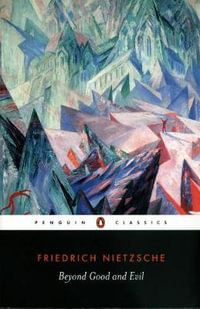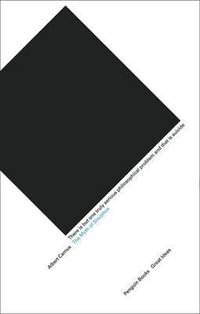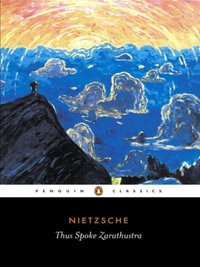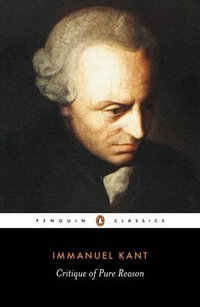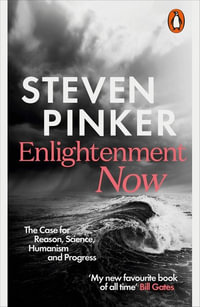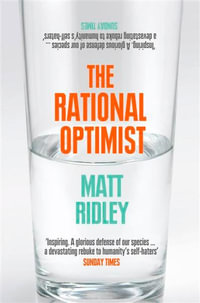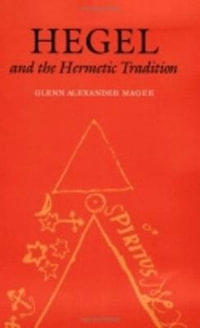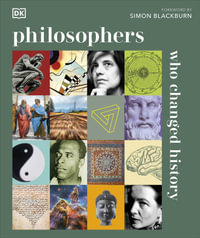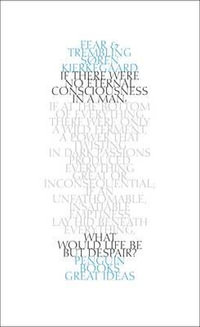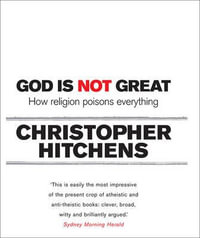Anxiety looms large in historical works of philosophy and psychology. It is an affect, philosopher Bettina Bergo argues, subtler and more persistent than our emotions, and points toward the intersection of embodiment and cognition. While scholars who focus on the work of luminaries as Freud, Levinas, or Kant often study this theme in individual works, they seldom draw out the deep and significant connections between various approaches to anxiety.
This volume provides a sweeping study of the uncanny career of anxiety in nineteenth and twentieth century European thought. Anxiety threads itself through European intellectual life, beginning in receptions of Kant's transcendental philosophy and running into Levinas' phenomenology; it is a core theme in Schelling, Kierkegaard, Schopenhauer, and Nietzsche. As a symptom of an interrogation that strove to take form in European intellectual culture, Angst passes through Schelling's romanticism into Schopenhauer's metaphysical vitalism, before it is explored existentially by Kierkegaard. And, in the twentieth century, it proves an extremely central concept for Heidegger, even as Freud is exploring its meaning and origin over a thirty year-long period of psychoanalytic development.
This volume opens new windows onto philosophers who have never yet been put into dialogue, providing a rigorous intellectual history as it connects themes across two centuries, and unearths the deep roots of our own present-day "age of anxiety."
Industry Reviews
"...what stands out is [Bergo's] capacity to inflect familiar material with uncanny resonances, without much editorial prodding. The Nietzsche we encounter here, for example, is one concerned with 'two pairs of anxiety': embodied pathos and reactive resentment, as well as mourning the death of God and rendering it the 'ultimate transvaluation' through eternal recurrence. The result is a demystified, non-reductive picture of Nietzsche that is theologically
unavoidable and plausibly resonant with current conceptions of emergent consciousness. Later in the book, it is refreshing to see Husserl's work on time consciousness and passive synthesis described so
clearly and with such a suggestive eye toward the theme of affect. In Bergo's account, we get a convincing sense both of his setting a 'new formal groundwork for psychology,' and of his role as a target for subsequent deformalizing dismantlings." -- Continental Philosophy Review
"Bergo (Univ. of Montreal) offers a wide-ranging but by no means superficial examination of the present-day notion of anxiety and its philosophical context. The philosophical story can be said to have begun with Kant's transcendental project as a response to the inadequacies of both empiricism and rationalism, but it travels through many major European philosophers of the 19th and 20th centuries. Bergo shows the sometimes surprising connections between and
among Kant, Fichte, Schelling, Hegel, Schopenhauer, Kierkegaard, Nietzsche, Husserl, Heidegger, Levinas, and other thinkers. There are also several side trips to scientists such as Darwin, Ekman, and
FreudDLas anxiety itself turns out to lie somewhere between human cognition and human emotion, between mind and body. Anxiety might at first appear to play a minor role in philosophy, but Bergo shows that it can be an important key....Summing Up: Recommended. Lower-division undergraduates through faculty and professionals." -- CHOICE
"This is a remarkably detailed study, and unlike many of the large and avowed exhaustive histories of philosophy, this one makes no claim to such. Bettina Bergo does something wonderfully creative. Instead of advancing a genealogy of anxiety, she makes a double move of examining the, in fact, fear of power, the desire for liberty without responsibility, and in doing so examines the conundrums of evasion. The work is valuable as a performance of its own
philosophical concerns, and for scholars interested in fresh readings of canonical figures of Euromodern continental philosophy. This is a beautifully written, extraordinarily well-researched work that should
generate a stir not only among scholars researching on the history of Euromodern philosophy, but also those interested in a rich understanding of subjectivity beyond pronouncements of eradication of its mark--in a word, 'the' subject.'" -- Lewis Gordon, Professor and Department Head of Philosophy, University of Connecticut

